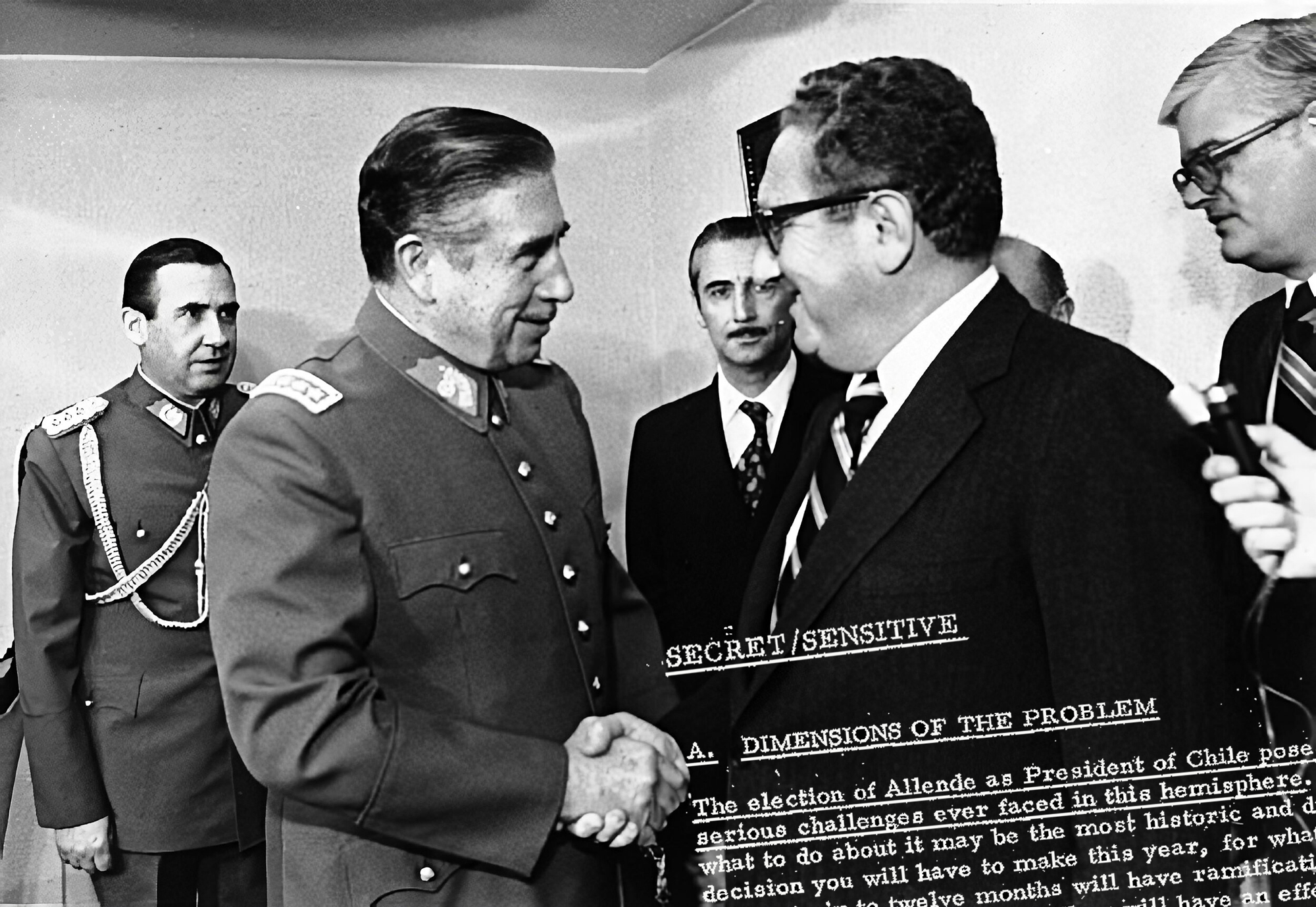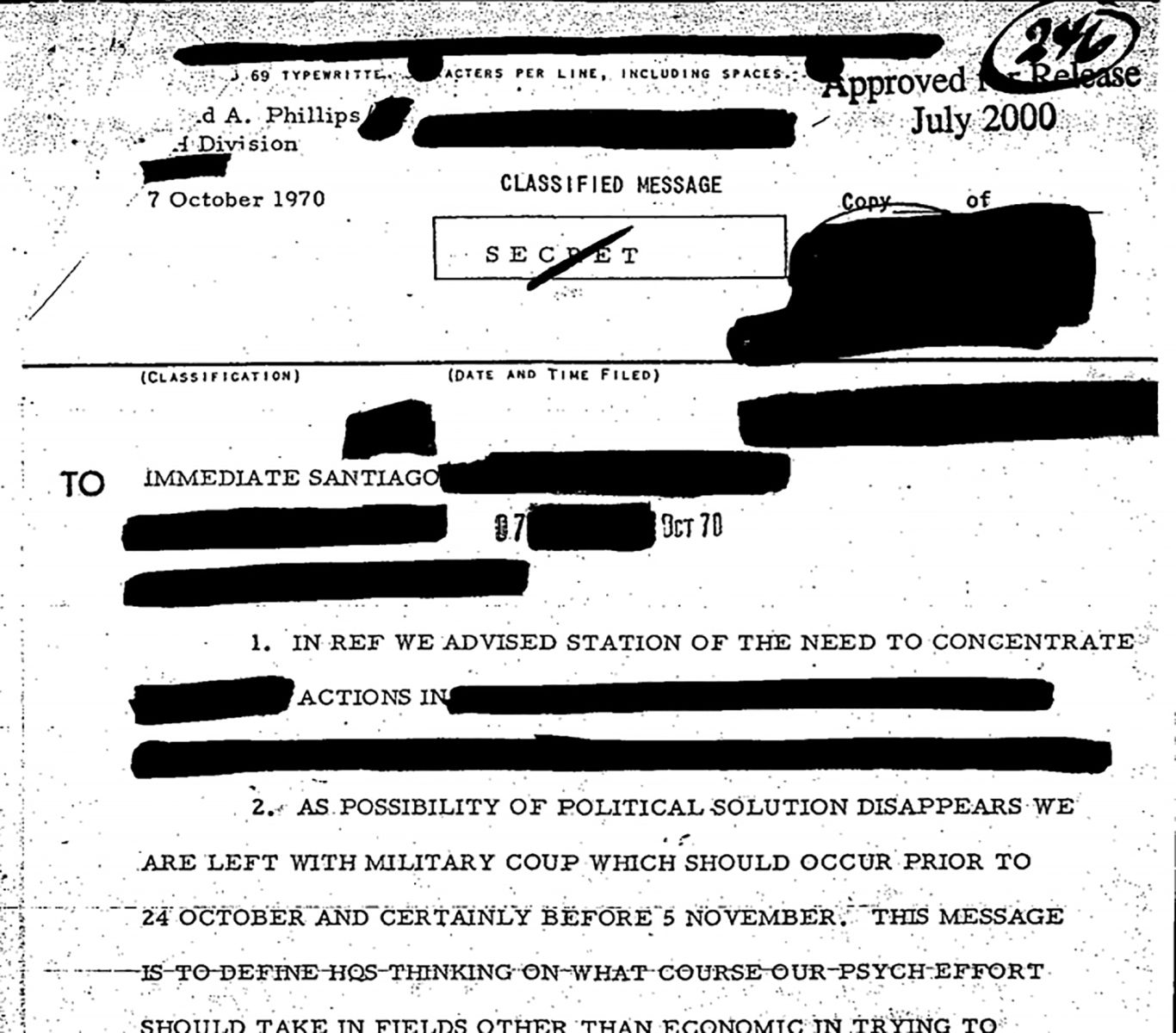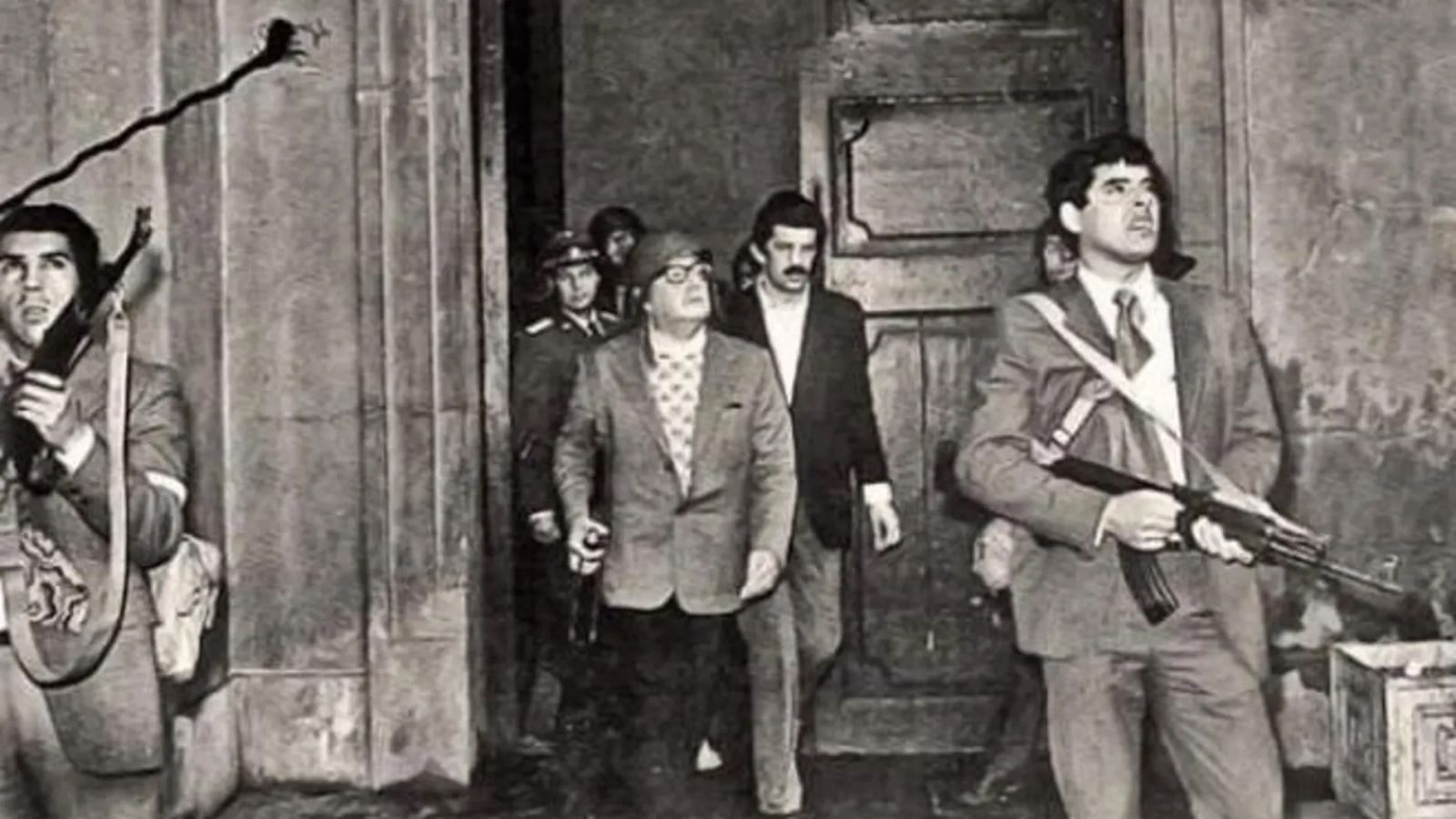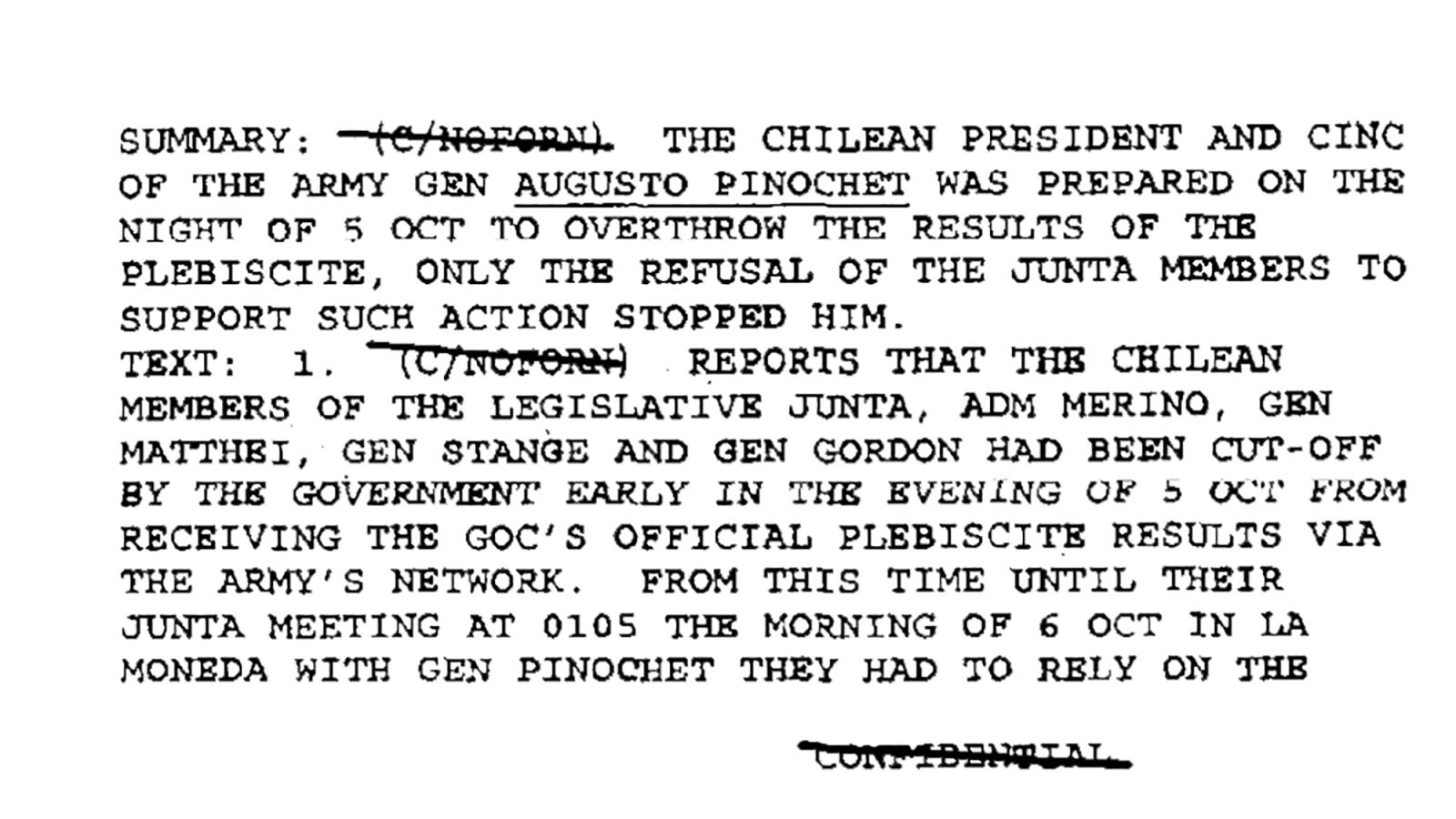
- When half a century of the coup d'état of dictator Augusto Pinochet in Chile is celebrated, eleven words are heard about the division of the country. Denying the repression of the 17-year-old dictatorship is the current weapon of some right, with a discourse conceived as a negationism. However, numerous declassified documents show the involvement of the United States in trampling the government of Salvador Allende. Will they be judged by history?

This year marks the centenary of the coup d'état of General Augusto Pinochet in Chile and the birth of politician Henry Kissinger. These are two names that will be glued to in the history books. The first one established a terrible dictatorship in that South American country, and the second one collaborated in this crime as an advisor to his post at the U.S. National Security Council, as those who now pay tribute to the Peace Novels know.
Under the chairmanship of Richard Nixon, the US Government has recently declassified two documents, on September 8 and 11, 1973, both prior to the Pinochet coup, which claim to know the Chilean military movements. U.S. House President Alexandria Ocasio-Cortez has published Joe Biden’s administrations after her visit to Chile to show her “Commitment to Chile”. Then came the 50th anniversary events, amidst the controversy of right-wing politicians who slip the words that justify the dictatorship and the citizens who denounce negationism.
But these documents know nothing. For decades thousands of documents have been released that reflect in Chile the socialist project of Salvador Allende that was being taken in Washington to send by popa: “We have so many that they can all read as a daily story of evolution.” This is what Peter Kornbluh, an American researcher who knows most of the world about CIA intervention in Chile, says.

Kornbluh is the director of the Chile documentation collection project at the National Security Archive of the University of George Washington, and has been doing so for forty years. In addition to the mouse work in the office hole, press the US government to release documents: In the time of Clinton he got thousands and in Obama he got thousands more. His obsession has been to build a “historical judgment” proclaimed by Allende for the names of Henry Kissinger and Richard Nixon to be definitely associated with the destruction of Chilean democracy.
Kornbluh is a great developer with whom the Net Cerca reader can find your interviews to your liking on the net. On Youtube there is a talk hanging, offered on August 31 at the Universidad de Chile communication school: “I’ve always wanted to explain to students like you how an CIA cable reads,” he tells his listeners. And there goes the top secret typography message to decipher line to line.
For decades thousands of documents have been released showing what was being eaten in Washington to send the socialist project of Salvador Allende by popa
Before they are declassified, the censors delete with a thick pen the data that they don't want people to know. They are mainly sources and methods, i.e. sources and methods used to obtain information. So we can see the documents stuffed with black, and the researcher must form a complex puzzle with lots of gaps.
The hand of Richard Helms and the United States
On 16 September 1973, when Allende died and the ruins of the Palacio de La Moneda de Santiago were still in smoke, Nixon called Kissinger on the phone: “Our hand is not seen in this case, right?” she asks. And Kissinger answers. “We have not. I mean, we've helped. [Hollow] created the best conditions." “That’s right,” the president concludes.
This transcription, among the declassified documents, is a valuable test of the intervention of EE.UU. in the Chilean coup, and Kornblonda has taken many years of experience to find out what is behind the unwritten vacuum: Richard Helms, head of the CIA.
According to the researcher, it may not be correct to say that EE.UU. He organized and promised the coup in Chile, but through the CIA they put an “atmosphere” in favor of a coup, as Kissinger confessed the White House tenant. In his work "Pinchet declassified", Editorial Catalonia, 2023, Pinochet delivered all his theses Kornbluhek, which he republished this year with more exclusive information, and for many this research could be equated to that carried out by a Truth Committee.
.jpg)
Anyone who does not have the possibility to buy a book of 532 pages can read a long interview that they have published in two parts on the left website of English Truhdig: Kissinger and the CIA in Chile: An Interview With Peter Kornbluh (“Kissinger and CIA in Chile: an interview with Peter Kornblonda”). The interviewer is not just anyone, but Marc Cooper, a personal translator from Allende and reprimanded by the 1973 coup. “This is the final interview about the CIA and Chile,” Truhdig’s article states. Since its inception, Kornbluhek individually tells of the terrible and misery that American intelligence left in that country.
Agustín Edwards and El Mercurio
On September 14, 1970, after winning the elections and about to reach the presidency of Allende, Agustín Edwards took the plane from Santiago to Washington, where he meets with Helms. Edwards owns the powerful newspaper El Mercurio, deputy director of the company Pepsico and one of the richest men in Chile. In Navarre, as Garcilaso did in 1936, the information provided by him will be key to starting a story: “Any military will have higher level meetings than Chileans to tell what the potential clues are and where the problems can be at a stroke,” explains Kornbluhe.
.jpg)
And the main "problem" had a name. René Schneider. The leader of the Chilean army said he would respect the Constitution, which was happening. These words caused great itching on the economic and military elite, and the CIA soon began conspiring with a “false flag” kidnapping to bring down the commander. For this, intelligence agents contacted the far-right group Patria y Libertad.
But on October 22, 1970, Schneider was kidnapped and killed. The move didn't go well because no one thought Allende had anything to do with the action, and the golfers didn't move. However, the CIA applauded its agents: “Because for many Chileans the military solution has become an opportunity,” says one of the agency’s cables. Kornbluhe speaks hard at this point in the dialogue: “We are talking about a plot for murder whose intellectual author is Henry Kissinger.”
Despite the failure of this attempt to bustle the coup, EE.UU. He will continue to warn the “climate cholera” during Allende’s tenure, economically destabilizing the country and funding counter-propaganda campaigns with Edwards Mercury, until his last handful was given on 11 September 1973.

Yesterday golpists, today deniers, tomorrow golpists
Why this barbarism of a small and peaceful country like Chile? “Kissinger is the best chess player,” says the researcher, and sees Chile’s impact on other NATO countries.” He believed that the European powers were going to fall like the Sunday tokens, convinced of the dreadful theories of the Cold War: “He was totally wrong, but he took on the future of Chile.”
Despite the failure of chess attempts at the coup in 1970 EE.UU. continue to warn the “climate cholera” in Chile, destabilizing the country economically and financing counter-propaganda campaigns
There is another less mentioned reason to understand what happened in Chile: In the 1960s, U.S. copper exporters Kennecott and Anaconda were the first to hit the White House slope, overwhelmed by the danger posed by Allende. In fact, the Marxist doctor probably didn't want to make the revolution along the way of Cuba, he was more pragmatic, but he had a clear goal: nationalization of copper. It is no coincidence that Chile is one of the main laboratories of neoliberalism in South America following the Pinochet coup.
In Missing ("Missing") by Kost-Gavras, winner of the Golden Palm in 1982 and the Oscar in 1983, the terror of the Chilean dictatorship appears very well. In the following years, EE.UU. He supported this system by causing thousands of victims, Kissinger being the godfather. We are at the time of Operation Condor, a hidden plan put in place by the South American military regimes to eliminate leftist exiles.
The American politician publicly denounced these mass disappearances on a trip to Santiago in 1976, but in private he told Pinochet: “Taking Allende off you have done a great service to the West and we help you.” This protection was maintained until at least 1988. That year the Chileans cast the dictator by plebiscite, although he wanted to give a new blow to stay in power, as the Pinochet book has discovered for the first time.
 After half a century, those who deny or justify the coup have taken hold in Chile. Members who say that the rapes of women of the time of Pinochet are an “urban legend” or the former presidents of Allende, as Sebastián Piñeira did, have struck. And as if it were not enough, negationism has become the political weapon of the right that extends to other countries: In the election campaign for the Argentine presidency, Victoria Villarruel Libertad Advances, representative of the ultra-fast party, questions the crimes of the dictatorship of that country, imposed by force in 1976. Villarruel is close to the VOX, please.
After half a century, those who deny or justify the coup have taken hold in Chile. Members who say that the rapes of women of the time of Pinochet are an “urban legend” or the former presidents of Allende, as Sebastián Piñeira did, have struck. And as if it were not enough, negationism has become the political weapon of the right that extends to other countries: In the election campaign for the Argentine presidency, Victoria Villarruel Libertad Advances, representative of the ultra-fast party, questions the crimes of the dictatorship of that country, imposed by force in 1976. Villarruel is close to the VOX, please.
Aware that this negationism can fuel the tip of the right and the new strikes, not only in South America, but also in the USA and Europe, Peter Kornbluhe stresses the importance of further declassifying secret documents. To make it clear what really happened in Chile, to their shame.